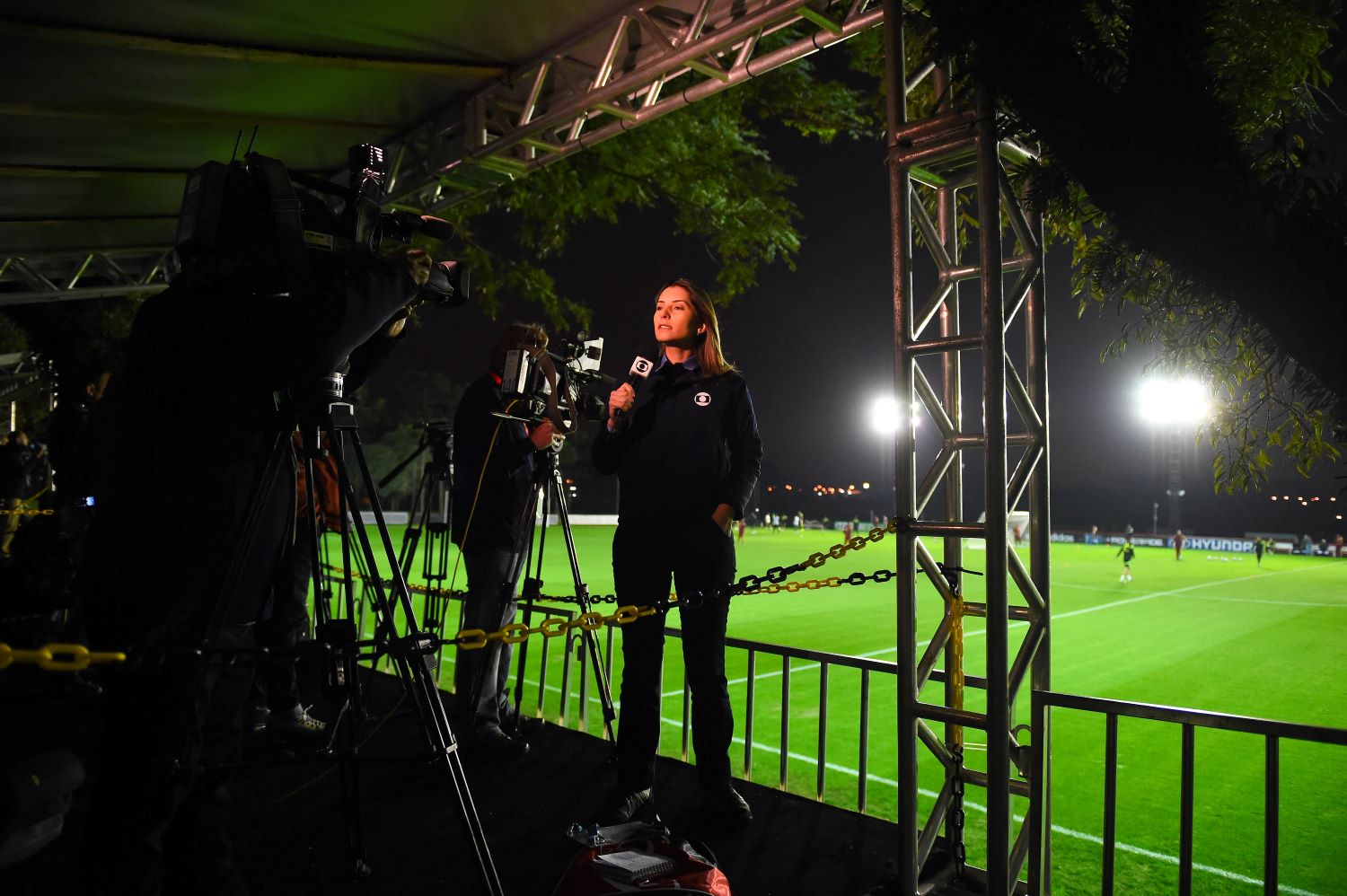In the second part of our special series on sports journalism, we explore the ways in which sports journalists can make a start in their careers
Why choose sports as a specialism in journalism? Most come to the field through their own love of sports, but there is a great deal more to being a professional sports journalist than just having a passion for the topic.
Sports journalists need an encyclopaedic knowledge of the sport they cover both in terms of keeping up with developments and understanding the finer details about whichever sport they specialise in.
Having a specialism within sports - whether it is a particular sports team or a geographical area of interest, for example - will give you an identity within the field of sports journalism which will appeal greatly to your audience. While building a specialist knowledge of your particular area of sports, you should also develop a good knowledge and understanding of sports generally.
Read more
Part 1: Sports journalism is no ‘easy life’
AJMI Sports Journalism Guidebook
You could easily find yourself out in the field and suddenly required to file a story on a sport you do not regularly cover to your news desk, for instance. You need to be ready for such eventualities. Understanding sports in all their types is important for sports journalists. Although it may seem that every sport has its particular features that distinguish them from the rest, in reality each type complements the others.

Why specialise?
The benefits of having a specialism are:
1. Building a reputation: A journalist specialising in an area of sports that may be popular but not covered enough, such as athletics, or in a technical field such as data sports journalism, has the opportunity to produce excellence for the audience. Such journalists can build a huge following and become a main point of reference for their audience and other journalists.
2. Being a trusted source: A specialist journalist can become a reliable source of news. The Italian journalist, Fabrizio Romano, who specialises in transfer markets news in football, formed a huge network of athletes’ agents and club managers. He has become such a well-known source of reliable transfer news that some clubs now work in coordination with him when making transfer announcements.
3. Building knowledge: A specialised journalist will build an encyclopaedic knowledge of his or her subject and be able to verify numbers, information and other data about any issue or event relating to their specialist field.
4. Writing a book: After a career as a specialist journalist, you may well be qualified to write a specialised book drawing on your personal experience in the field, which could become an important point of reference for others entering the field.
5. More career opportunities: A specialist journalist will find themselves qualified for many job opportunities after building a long career in a sports specialism. This experience may qualify them to become sports analysts or university lecturers, for example. Sports clubs management may also become a possible avenue, or even working close to players in supervisory roles. All of these opportunities will be due to the wide experience you have gained as a specialist journalist.
Most sports journalists enter the field in one of two ways: either by studying journalism at university or college and majoring in sports or by independently beginning their journalism careers without an academic background in journalism. Those who have successfully gone down the latter route have usually either built up sufficient work experience to qualify them for positions at media organisations, or they have entered those organisations through training programmes and then gradually risen through the ranks to become professional journalists.
Those who reach the ranks of successful sports journalists do so through strenuous hard work and by building up a very wide background knowledge of sports. This includes a detailed knowledge of most of the sciences related to sports, as well as sports law, sports medicine, humanitarian sciences, sports economics and business, and others. Successful sports journalists must first be professional journalists before they become specialists in sports or related fields. They are required to understand all types and patterns of journalism and commit to the professional rules and ethics of the profession, mainly objectivity, integrity and reliability.

How to get started
These are the main steps to getting started in sports journalism:
1. Have passion: Get to know every detail about the sport you want to cover - its rules, its stars’ names - and build up a wide background knowledge. Without passion, you will find it hard to start a career as an expert journalist in a specific sport and continue with it.
2. Start with your local team: Attend the training sessions and matches of your local team or any club that will welcome you in for a close-up on your favourite sport. This will enable you to build your knowledge on your chosen sport, and the path players and teams take from training to matches in the stadium.
3. Keep a keen eye on the news: To further your knowledge, keep up with all the news related to your favourite sport. Take note of the various styles of writing, analysis and commentary.
4. Archive anything that catches your eye: Whenever you find a distinctive headline, a strong article, an interesting angle or description, or an interesting link to information you lack, document it.
5. Write, write, write: Work on your writing and editorial skills. Writing is the only way to develop your journalism skills, whichever format you want to work in - a written script is the basis of any broadcast content. This will also help you find your own style and develop your individuality
6. Decide what type of sports journalist you want to be - first, choose your media: This might be newspaper, television, digital, radio or podcast journalism. (Over the years, there have been many instances of providing sports content in an interactive way, such as analysis videos on YouTube, as well as Podcasts. However, most of these have been limited to individual productions, made by those interested in sports, who are not necessarily professional journalists).
7. Choose your specialism: whether it is being a field correspondent, or an expert in transfer markets or match analysis, or something else entirely. (The Analyst UK website went even further. It hired a correspondent to cover each team of the English League for football, including some second-division clubs. This helped with building fan bases for those correspondents. For example, James Pierce covers Liverpool for the website and now has more than 900 thousand followers on Twitter).
8. Decide where you want to work: find out about the editorial policies and work flow of the organisations you would like to work for or collaborate with. (Italian journalist Fabrizio Romano, 29, is one of the most well-known and trusted journalists writing about football transfers. He collaborates with many media organisations and has more than 11 million followers on Twitter. So well trusted is he by football fans, that several major football teams have collaborated with him in announcing transfers.)








































